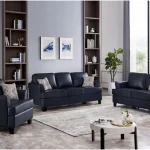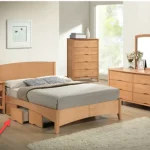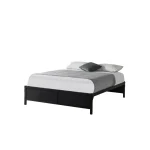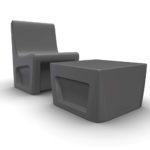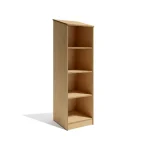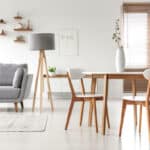Furniture that Withstands the Realities of Substance Use Disorder Environments: Heavy Use, High Turnover, and Trauma
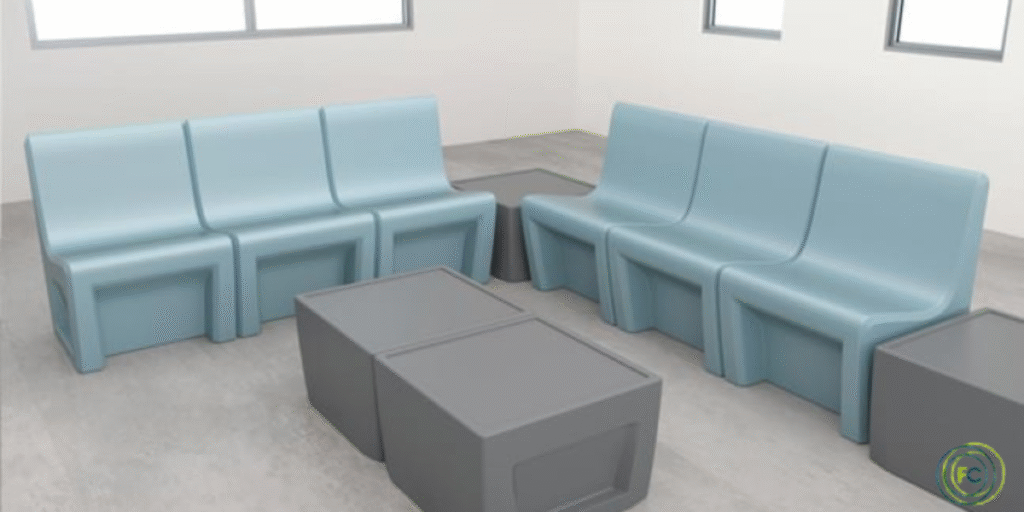
Furnishing behavioral healthcare and addiction recovery environments presents unique challenges that extend far beyond traditional residential or commercial settings. These facilities need furniture that remains reliable, functional, and able to withstand intensive daily use. The right choices combine heavy-duty furniture durability with a calming, therapeutic aesthetic that supports healing.
In these environments, trauma-informed design plays a vital role. The right trauma-informed furniture can help residents feel at ease, maintain a sense of control, and find support in their recovery journey. By carefully selecting residential care furniture and furniture for addiction treatment centers, facilities can create welcoming spaces that promote healing while enduring the rigors of constant use.
The Unique Demands of Substance Use Disorder Environments
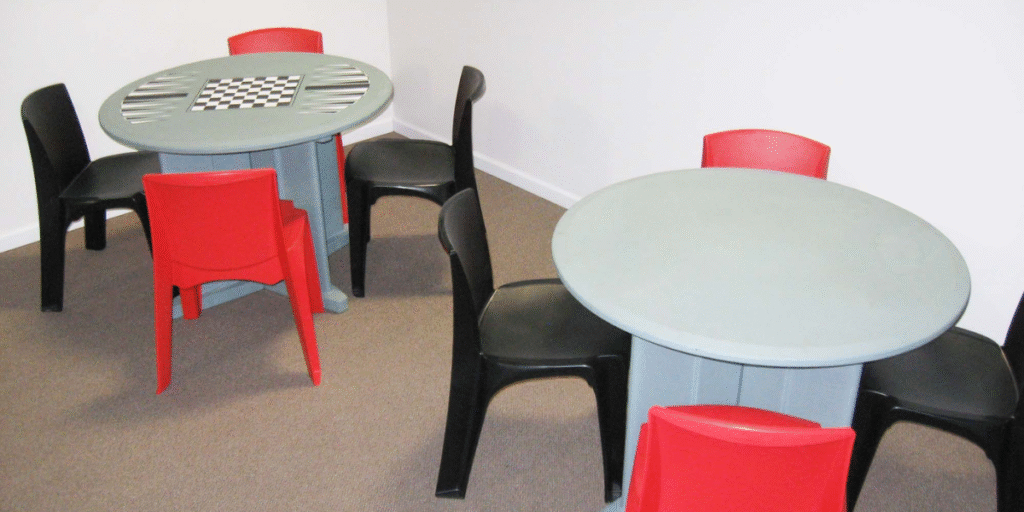
Substance use disorder (SUD) environments face a distinctive set of challenges when it comes to furniture. High traffic, frequent turnover, and the need for trauma-sensitive design mean that choices must prioritize durability and therapeutic benefit together.
Heavy Use in Residential and Treatment Settings
Furniture in treatment centers and recovery homes faces relentless use. Chairs, tables, and beds often accommodate multiple individuals each day, which leads to faster wear compared to standard home or office settings. This is where heavy-duty furniture and furniture for high-traffic environments become essential. Materials must resist impact, tolerate constant cleaning, and remain structurally sound over long periods.
The use of reinforced frames, rotomolded plastics, and commercial-grade finishes ensures long-term reliability. Without these specifications, facilities risk frequent repairs or replacements, adding to overall costs.
High Turnover Challenges
Addiction treatment environments often experience high resident turnover. Each new resident creates new demands on furnishings, increasing the strain on furniture for addiction treatment centers. Beds, chairs, and storage units must withstand heavy use along with rigorous cleaning cycles between residents.
To manage this, facilities often rely on wholesale furniture suppliers who deliver durable, consistent solutions. Choosing bulk furniture that maintains its appearance over time helps facilities stay efficient while supporting hygiene.
Trauma-Sensitive Environments
Healing from addiction frequently involves addressing trauma. The physical environment, including furniture, can either relieve stress or increase it. Trauma-informed furniture is designed to create calmness and reassurance while avoiding harsh institutional aesthetics.
Incorporating warm, home-like finishes, flexible seating arrangements, and privacy-focused designs allows facilities to support residents’ emotional well-being. This transforms residential care furniture into a tool that contributes to recovery as well as meeting functional needs.
Key Characteristics of Furniture for SUD Environments
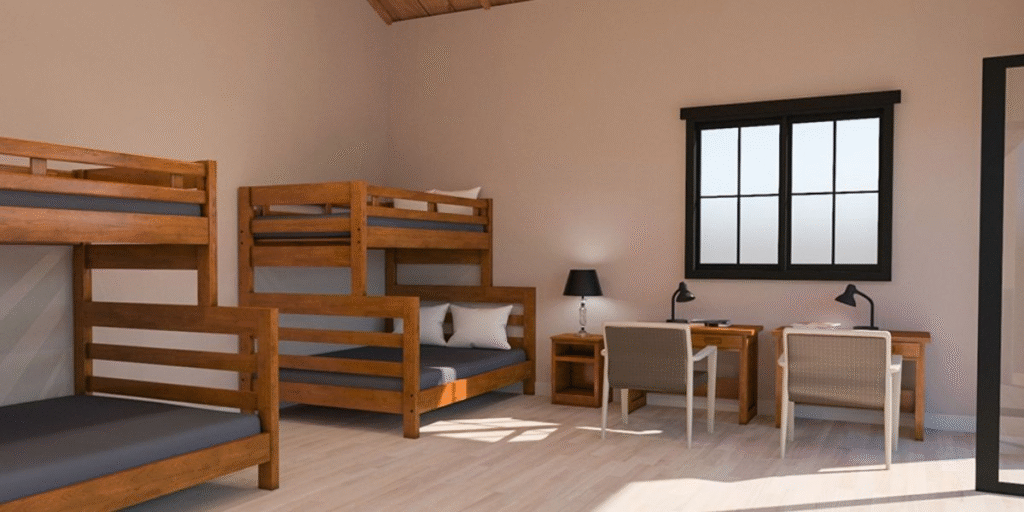
To succeed in demanding environments, furniture must balance durability, hygiene, and therapeutic design. The following characteristics help facilities make informed choices when selecting heavy-duty furniture and trauma-informed furniture.
Durability and Security
Strength is essential in addiction treatment environments. Furniture for high-traffic environments must be tamper-resistant and capable of withstanding rough handling.
- Tamper-Resistant Construction: Single-piece or molded designs minimize tampering and reduce risks for residents and staff.
- Heavy-Duty Materials: Solid wood, reinforced steel, or rotomolded plastic deliver strength and resilience to withstand heavy daily use.
- Anti-Ligature Features: Rounded edges and secure hardware prevent misuse, improving overall conditions in high-risk settings.
- Weighted or Bolt-Down Options: Secure, stabilized furniture reduces movement and prevents potential misuse in communal and private spaces.
- Replaceable Components: Modular or replaceable parts allow simple repairs, extending the lifespan of furniture while controlling costs.
By sourcing through a reliable furniture wholesaler, facilities gain long-term consistency and durability.
Hygiene and High Turnover
Frequent cleaning and disinfection are necessary in recovery facilities. Furniture for addiction treatment centers must support these protocols without losing integrity.
- Seamless Upholstery: Smooth, continuous surfaces block dirt and bacteria from building up, making cleaning quicker and more effective.
- Bed Bug Resistance: Specialized designs reduce hiding places for pests, protecting both residents and staff.
- Durable Fabrics: Commercial-grade textiles withstand thousands of cleaning cycles while keeping their appearance.
- Moisture-Resistant Mattresses: Antibacterial, sealed surfaces extend mattress life and maintain hygiene standards.
These qualities make wholesale furniture and bulk furniture practical choices for managing hygiene and turnover.
Trauma-Informed Aesthetics
The look and feel of furniture influences recovery. Institutional designs can increase stress, while thoughtful, homelike choices can provide reassurance.
- Familiar Materials: Warm finishes such as solid wood give spaces a welcoming, homelike feel that reduces stress.
- Soothing Colors: Soft, neutral tones promote calmness and help lower anxiety in treatment environments.
- Flexible Layouts: Modular designs allow residents and staff to adapt seating to different activities, creating choice and control.
- Privacy Options: High-back seating and small nooks provide personal space, supporting emotional well-being.
Working with a furniture wholesaler experienced in healthcare provides access to trauma-informed furniture options that combine resilience with warmth.
Examples of Furniture Types Suited for SUD Facilities
Certain furniture types are especially effective in addressing the demands of treatment centers and recovery homes. These solutions bring together durability and trauma-informed design.
Rotomolded Plastic Furniture
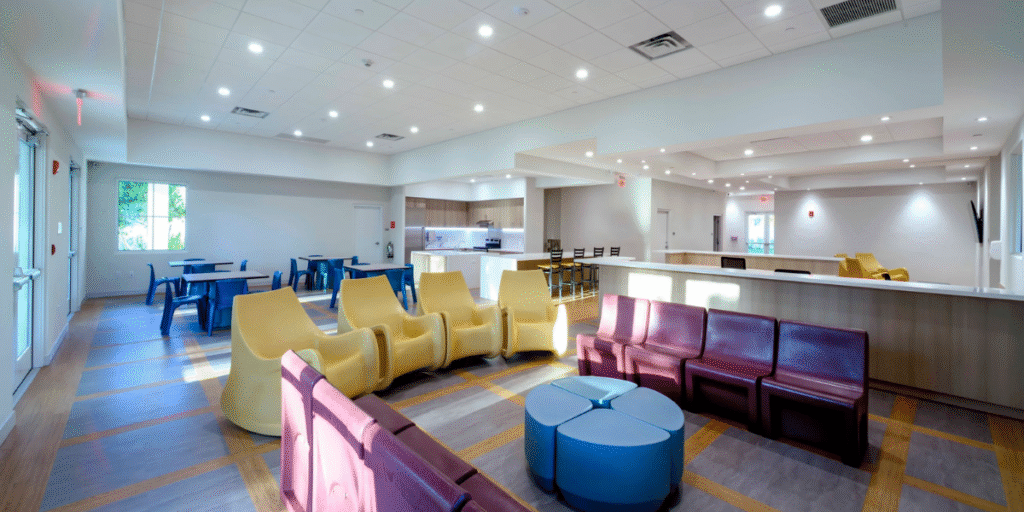
Rotomolded plastic pieces work well as furniture for high-traffic environments. Their seamless, one-piece construction makes them tamper-proof, easy to clean, and exceptionally durable. Available as chairs, tables, and beds, many designs can be bolted down for added stability.
This type of heavy-duty furniture minimizes maintenance needs while ensuring reliability.
Heavy-Duty Solid Wood Furniture
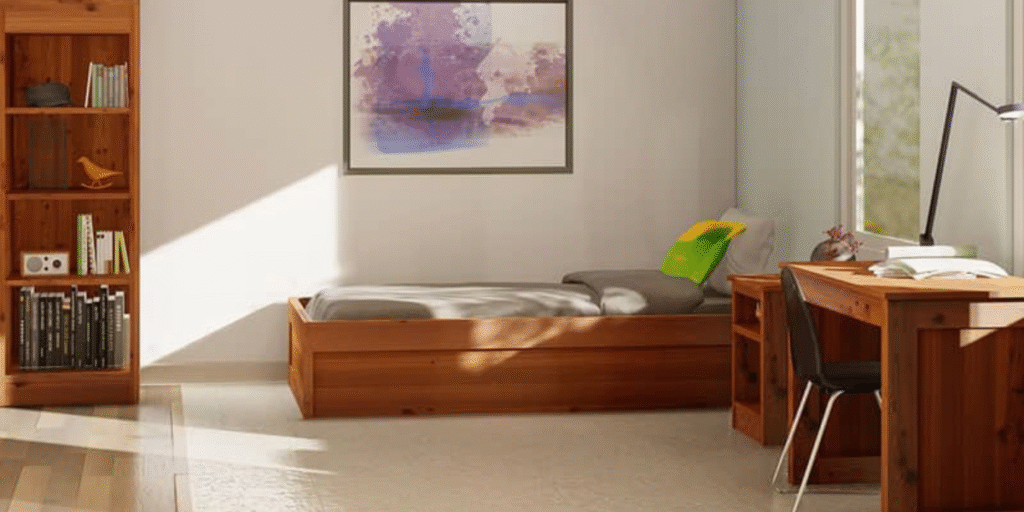
Solid wood furniture, reinforced for security, offers a warm and inviting look that supports trauma-informed design. Its strength makes it valuable as residential care furniture, while tamper-resistant features enhance durability.
These pieces bring a homelike aesthetic without compromising strength, bridging the gap between trauma-informed furniture and practical needs.
Bariatric and Intensive-Use Furniture
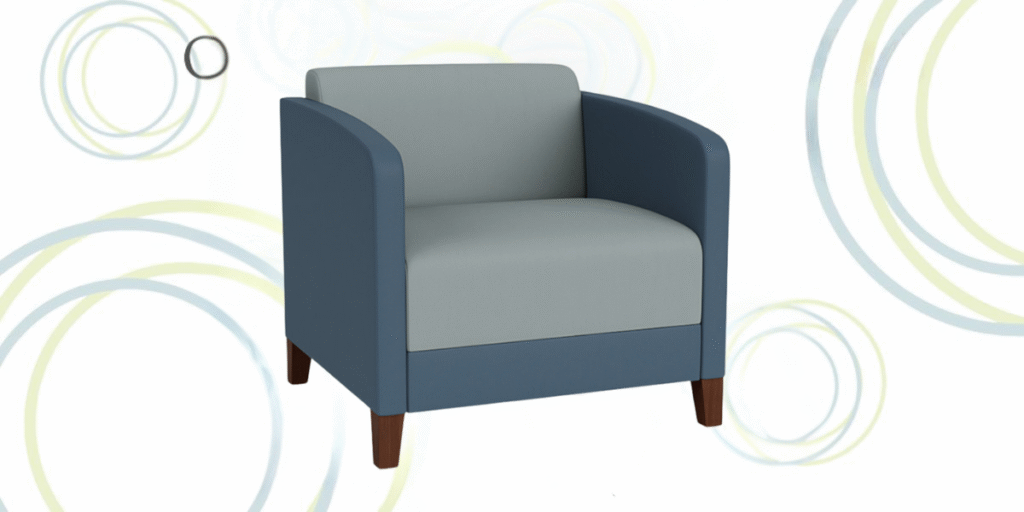
Facilities serving diverse populations require bariatric solutions that accommodate all body types. Heavy-duty furniture with reinforced frames and high-density foam ensures long-term use and reliability.
In intensive-use settings, such as detox units, this type of furniture for addiction treatment centers proves essential for consistent performance.
Healthcare-Grade Upholstered Seating
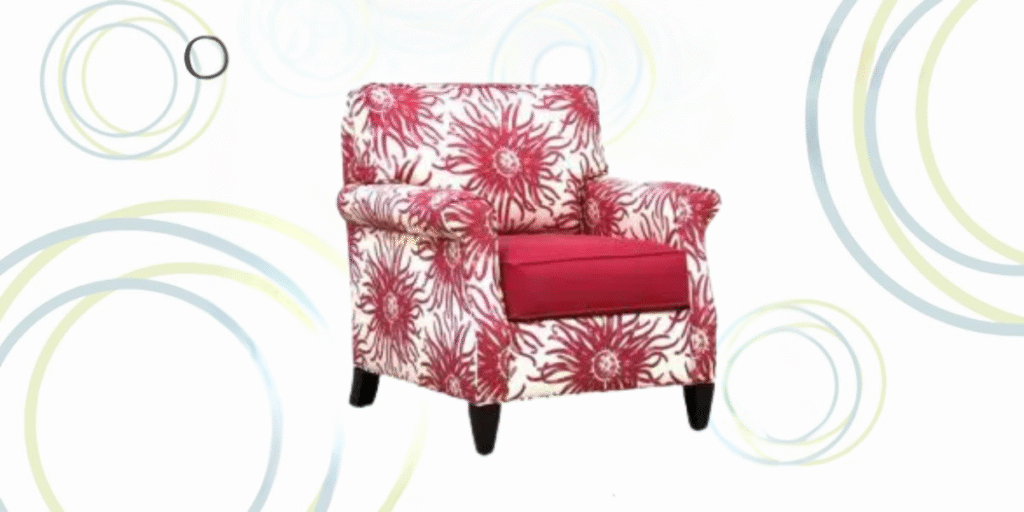
Relaxation and group therapy require comfortable, durable seating. Healthcare-grade seating features easy-to-clean vinyl or silicone upholstery, rounded arms, and reinforced frames. These qualities combine hygiene with trauma-informed design.
As a result, trauma-informed furniture supports therapy, rest, and socialization while maintaining sanitation standards.
Choosing Furniture for Different Spaces Within Facilities
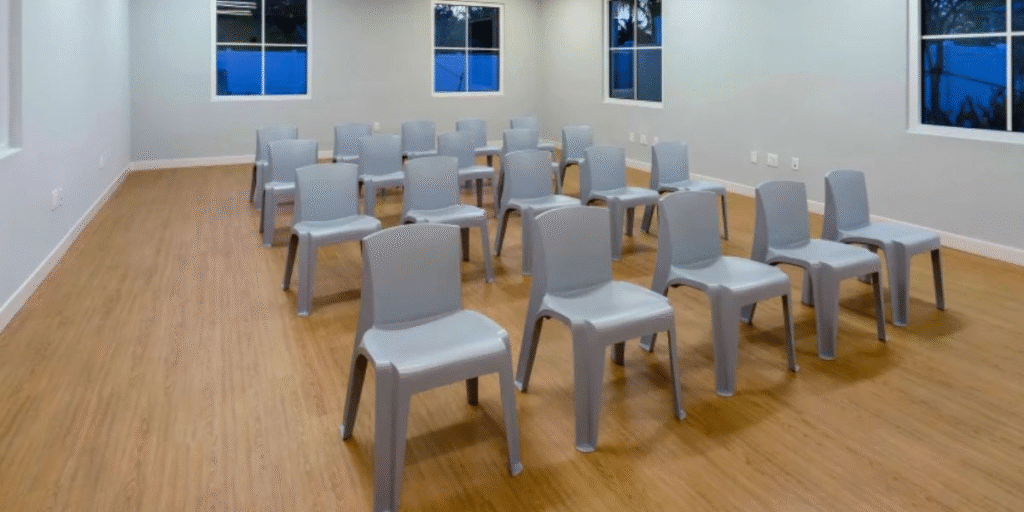
Each space within a treatment center or recovery facility requires a tailored approach. Selecting the right combination of wholesale furniture, bulk furniture, and specialized pieces ensures both functionality and therapeutic benefit.
Communal Spaces
Communal spaces host group therapy, social activities, and meals. These areas need highly durable choices. Heavy-duty furniture and furniture for high-traffic environments are critical, as tables, chairs, and sofas must endure constant use without deterioration.
Private or Semi-Private Rooms
Private rooms must balance dignity with durability. Residential care furniture provides warmth and strength. Incorporating trauma-informed furniture with soothing colors and soft textures helps residents feel supported while maintaining resilience.
Multi-Purpose Treatment Areas
Therapy rooms must support multiple functions, from one-on-one counseling to group sessions. Flexible, modular, and heavy-duty furniture works best for furniture for addiction treatment centers. Partnering with a furniture wholesaler ensures access to bulk solutions that adapt to changing needs.
Maximizing the Lifespan and Functionality of Furniture
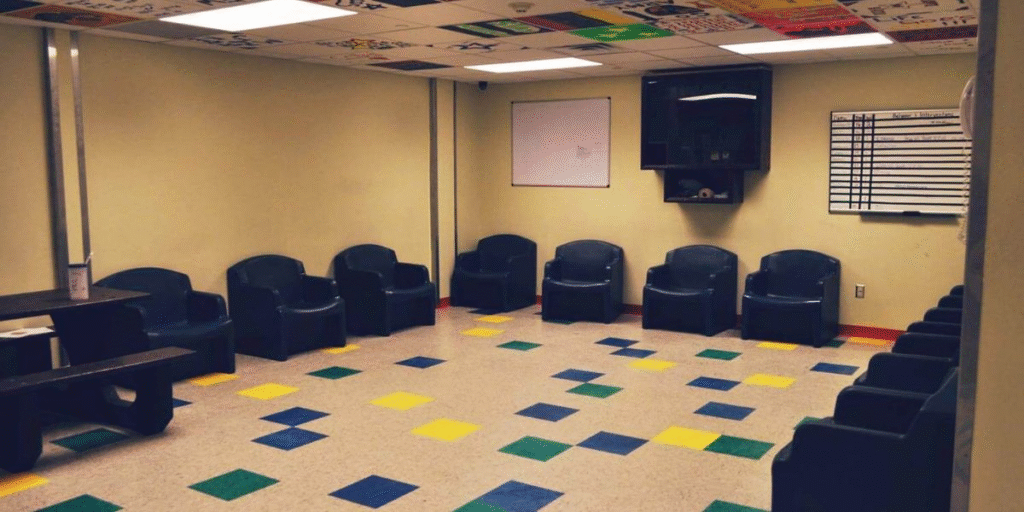
With constant use and high turnover, facilities must plan carefully to maintain furniture performance and control costs.
Planning for High Turnover
Facilities can reduce expenses by choosing residential care furniture and wholesale furniture that maintains quality despite frequent resident changes. Durability and ease of maintenance protect against unnecessary replacement.
Balancing Durability and Therapeutic Goals
Strength is critical, but trauma-informed furniture ensures spaces remain welcoming and recovery-focused. The challenge lies in balancing secure, resilient construction with designs that encourage healing. Selecting styles that align with therapeutic goals enhances the overall environment.
Maintenance and Replacement Strategies
Partnering with a furniture wholesaler helps facilities develop a long-term plan for phased updates. By sourcing bulk furniture, consistency across spaces is maintained while budgets remain manageable.
Routine condition checks and scheduled maintenance further extend the life of heavy-duty furniture, keeping spaces dependable and functional.
How Furniture Concepts Support Durable and Trauma-Informed Spaces
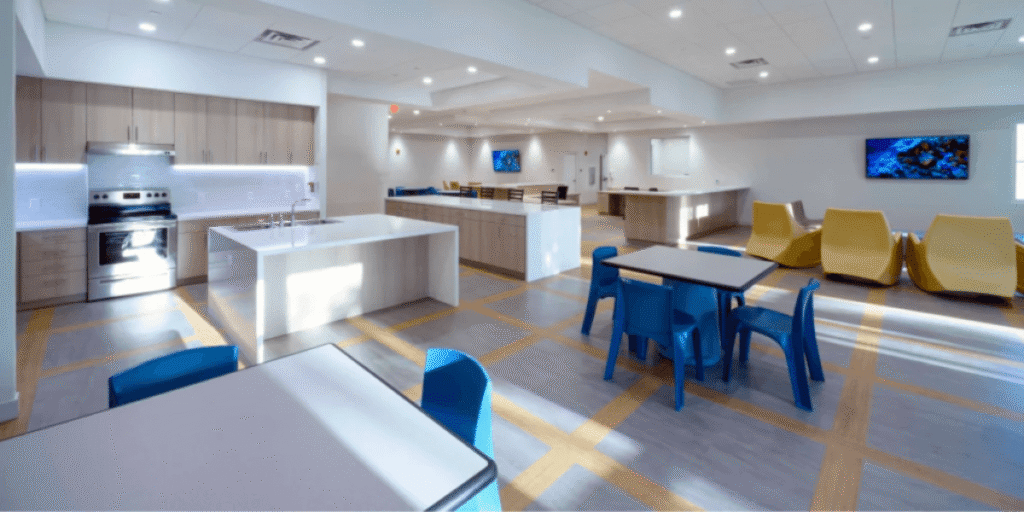
Furniture Concepts brings decades of experience delivering durable, therapeutic solutions for behavioral healthcare and recovery facilities. Our heavy-duty furniture withstands 10+ years of continuous use, ensuring reliability and value.
As a trusted furniture wholesaler, we provide wholesale furniture and bulk furniture that meet the highest standards of hygiene and design. From furniture for residential care to specialized options for addiction treatment centers, we have a wide selection of styles that are focused on enhancing the healing journey.
Our focus on trauma-informed furniture ensures every environment is welcoming and recovery-oriented. With personalized consultation and dependable delivery, we help facilities shape spaces that inspire hope and strength.
Conclusion
Furnishing recovery environments calls for strong, adaptable, and therapeutic choices. Each decision must address heavy use, constant turnover, and the emotional needs of residents. Facilities that combine heavy-duty furniture, residential care furniture, and trauma-informed furniture create settings that feel secure, inviting, and supportive of recovery. Cleanability, resilience, and thoughtful design features such as warm finishes and flexible layouts help residents settle in while keeping spaces practical for staff.
Working with a dependable furniture wholesaler provides access to wholesale furniture and bulk furniture built for high-traffic conditions. Careful planning and investment in these solutions improve recovery outcomes, lower replacement costs, and preserve consistent, welcoming spaces.
Partner with Furniture Concepts for guidance and durable solutions that unite style and therapeutic design. Reach out today to begin shaping healing spaces that offer dignity, strength, and hope.


